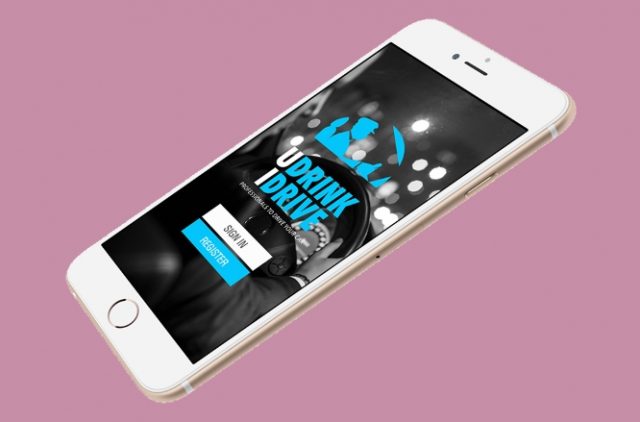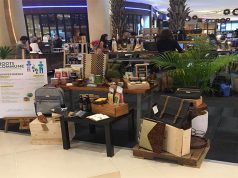MANILA – Have you ever driven yourself to a party, only to find yourself too tipsy to get behind the wheel afterwards?
Thai entrepreneur Sirasom Borisutsuwan has just the solution for that: U-Drink, I Drive, a mobile application that allows you to hire a driver to take you and your car safely back home.
While doing her thesis for a master’s degree in business, Sirasom found that Thailand ranked third in the world in terms of having the most road accidents, with many of these caused by drunk driving. Over 200 million baht was lost every year due to road accidents.
The problem persisted despite the private and public sector heavily promoting “Don’t drink and drive” campaigns, Borisutsuwan said.
So she held a focus group discussion with people who would go out drinking at a popular nightclub in Bangkok, and found that they did not have enough choices to return back home. They did not want to leave their cars at their gimmick spots overnight because of the possibility of theft, so they were forced to drink and drive.
After graduating, Borisutsuwan made it her mission to reduce road accidents in Thailand, and had now been operating for four years with 165 drivers, including 45 women.
U-Drink, I Drive has served 200,000 trips, and could now be used by those who were too sick to drive themselves to the hospital, or even by those who were “too lazy to stay in their cars during a traffic jam.”
Borisutsuwan was one of the speakers Thursday at the ASEAN Women’s Business Conference, held at the Philippine International Convention Center in Pasay City, during a segment titled “ASEAN Youth Disrupting for Change”.
With her was Esther Wang from Singapore, who designed a toy named “Rabbit Ray”, which came with medical instruments, to ease children’s fears when they are up for vaccination or go through chemotherapy, or just to undergo blood extraction.
While volunteering in a children’s hospital, she observed that children were frightened of needles. Being a product designer, she believed she had the right skill set to address the issue.
“Instead of saying somebody should do something about it, I decided to jump in and be that someone, and down the rabbit-hole I went,” Wang said.
She sketched her ideas on paper, learned about the manufacturing and engineering work that would go into her product, and even wrote a book that would explain the medical equipment to children. A Malaysian angel investor gave her access to capital, and now Rabbit Ray is being used everywhere from the Philippine Children’s Medical Center to Johns Hopkins Hospital.
An augmented reality app is on the way, too.
By playing with Rabbit Ray, children could familiarize themselves with syringes and IV drips, gain a sense of normalcy despite their environment, and ask questions like, “What’s happening to my body?” and “Will I recover?”.
Another speaker at the event was Raeesa Sya from Malaysia, who founded Orkid Cosmetics. The halal line of make-up is meant to cater for Muslim consumers as well as beauty buffs who wanted to use organic and vegan products.
She studied graphic design and had majored in multimedia arts in college, but had always been enterprising. Sya’s first business was launched when she was 10 years old, selling snacks to her classmates.
“Business was great for about a week before the illicit operation got shut down,” she joked.
At 17, she launched her second business, selling customized shoes and clothes through social networking website Myspace.
“I realized that the internet is borderless, I had customers from all over ASEAN as well,” she recalled.
She joined a start-up after graduation, building web sites and doing digital marketing. When she was 25, she decided to launch her own business, building an app that would enable users to find the nearest salon or spa. She did that for a few months, sold it, and started a similar business with two partners, did it for a year, then founded Orkid Cosmetics.
Like her, Sorita Koung from Cambodia was also involved in the world of technology.
A mother of two, and the vice president of the communication committee of the Cambodian Women Entrepreneurs’ Association, Koung had four businesses, including a school and Ocean Technology, of which she was the founder.
Ocean Tech provided GPS tracking systems to its clients. As Cambodia was a developing country, said Koung, citizens still had a lot to learn in terms of new technology. She wanted to bring such innovations to her home.
She also hosted a talk show to encourage young Cambodians to create businesses.
People thought women could only operate businesses such as salons, she said. She was eager to prove them wrong.
In Myanmar, Chan Myae Khine founded its first digital marketing agency, Amara Digital Marketing Agency.
She had worked for about five years in Singapore after studying there, and wanted to return home. But there were no multinational companies in Myanmar back then, so the only way she could go back home was to create her own business.
She was surprised that no one was doing digital marketing at the time, so she decided to change that.
“As a young woman, people don’t take me seriously,” Khine said. She had to educate clients and new hires about the industry that she was trying to build.
People thought she was just playing around, or that her company might collapse. But from Khine having no office and asking a friend to bring her to a meeting with a prospective client, Amara Digital Marketing Agency is now serving 20 clients at the same time.
Khine has this tip for older entrepreneurs who might doubt the young: “Just give them a try and you will see so many fruitful changes in the ASEAN region.”






